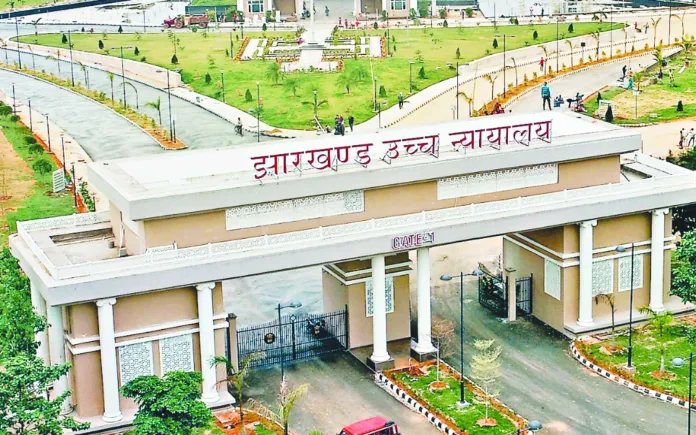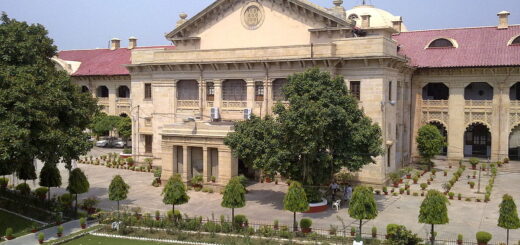The Jharkhand High Court stated that even in departmental proceedings, some evidence is needed to prove wrongdoing against the accused.

The Jharkhand High Court stated that in departmental proceedings, some evidence must be presented against the accused, and the process must follow the established rules. The court was reviewing writ petitions related to pension benefits and the challenge to the petitioner’s termination. Justice S.N. Pathak noted that while a Writ Court’s intervention in such cases is limited under Article 226 of the Constitution, evidence is still necessary, and the proceedings must adhere to the governing rules.
The petitioner submitted two writ petitions: one seeking pension benefits and the other to overturn his termination. The allegations against him included withdrawing Rs. 4,36,000 while serving as Block Education Extension Officer, failing to distribute the funds to schools, and not providing details to his successor. Additionally, he was accused of distributing only 35 bags of rice instead of the required 40, and there was an ongoing criminal case against him. Due to these issues, a departmental inquiry was conducted, leading to his termination. He appealed the decision, but it was rejected. Subsequently, he filed a writ petition, and during this time, he retired.
The petitioner’s lawyer argued against the termination order, claiming that the start of the departmental proceedings was unlawful. He pointed out that these proceedings were based on Rules 49 and 55 of the Civil Services (Classification, Control & Appeal) Rules, 1930, which had been repealed by the Jharkhand Government Servant (Classification, Control & Appeal) Act of 2016. He stated that this meant the initiation of the proceedings showed a lack of proper consideration by the authority. He referred to the inquiry report, noting that the inquiry officer found the charges against the petitioner to be valid without calling any witnesses to support those charges. He argued that simply presenting documents is not enough to prove the charges unless a witness verifies their contents. He cited Supreme Court cases, including Hardwari Lal Vs. State of U.P. & Ors., to support his claim that charges cannot be proven without examining the complainant, and Roop Singh Negi Vs. Punjab National Bank & Ors., to emphasize that without witness testimony, charges remain unproven, meaning no punishment can be applied to the accused.
Conversely, the lawyer for the respondent State argued that the departmental proceedings against the petitioner were valid and that the inquiry officer confirmed the charges. He mentioned that the petitioner had sufficient chances to respond to the show cause notice, and the disciplinary authority subsequently punished him. The petitioner’s appeal against this decision was also rejected.
The Court pointed out that removal from service falls under Major Penalty as defined in Rule 17. Rule 17 (3) (ii) (a) requires that if an inquiry is to be held against a Government servant, the disciplinary authority must prepare a summary of the charges and include a list of witnesses who will support each charge. The Court noted, “In this case, the charge memo, which is Annexure-1 to the writ petition, does not show that this requirement was met, as there is no witness list provided. These rules took effect on April 15, 2016, and the charges against the petitioner were framed on June 20, 2016. Therefore, the mandatory rules were not followed when starting the proceedings against the petitioner. Additionally, although the 2016 Rule was cited when the departmental proceedings began on June 20, 2016, the respondents referred to Rules 49 and 55 of the Civil Services (Classification, Control & Appeal) Rules, 1930, which had been repealed by the 2016 Rules, according to Rule 32, which addresses repeals and savings. This indicates a lack of proper consideration by the disciplinary authority when starting the proceedings.” The Court concluded that only documents were presented, and no witnesses were called, meaning the charges could not be proven, as documents alone are not enough without witness testimony. The Court agreed with the petitioner’s Counsel and ruled in favor of the petitioner.
Cause Title: Jagdish Paswan vs State of Jharkhand
Appearances:
Petitioner- Advocate Manoj Tandon, Advocate Neha Bhardwaj
Respondent- Nehru Mahto, Assistant Counsel to Government Pleader.









